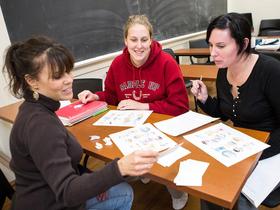Community colleges have come a long way since their inception. Instead of falling into the ranks of the “fallback” plan, many of these schools have now become the first choice for students looking to change career direction or explore higher education for the first time. With a focus on the community college system in recent years, the changes on these campuses have been even more pronounced, with a wider variety of degree programs, services, and even on-campus housing. Check out these five ways community colleges have evolved to become full-service institutions of higher education.
Greater Diversity in Degree Programs
Community colleges were typically known for their relatively generic liberal arts degree programs, but not any longer. Today’s students can choose from a wide range of two-year degrees, ranging from fine arts to engineering. Many of the degree programs at community colleges today are industry-centric, meaning they focus on training individuals for jobs in the local market. Schools even partner with employers in the community to ensure the training students receive at the community college can take them right into the workforce.
Some of the unique and interesting programs you might find at your local community college today include:
- Solar Energy Technology
- Sustainable Agriculture
- Performing Arts and Music
- Computer Engineering
- Exercise Science
- Nursing and Healthcare
- Manufacturing Engineering
Even fields like culinary arts, funeral home management, and criminal justice can be studied at some community colleges. No matter what you are interested in studying,



























